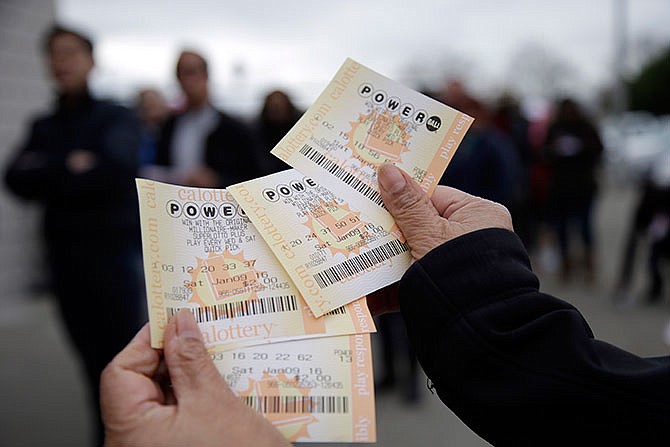Although millions swarmed to the counters to buy Powerball tickets last week, local faith leaders say gambling either can be - or is - contrary to their church teachings.
To label the lottery as bad is too simple, said Mark Kiekhaefer, pastor of Grace Evangelical Free Church in Jefferson City. Instead, he suggests it reflects the degree to which a society is given over to greed.
"We have believed the lie that life consists in what we can purchase or attain through the use of money," Kiekhaefer said. "This past week saddened me. The amount of money was staggering."
The scale of throwaway money for the winning in America versus the economically deprived developing countries is what is immoral, he said.
"Theologically, it flies in the face of our affirmation that God is sovereign and desires to supply his children with all that they need (not all that they want)," Kiekhaefer said. "I would encourage all the people to thank God they did not win the lottery."
Lisa Deutsch, associate pastor at Jefferson City's First Assembly of God Church, shared the denomination's position paper on gambling, which says "The Bible contains no explicit statements condemning gambling."
However, the Assemblies of God paper goes on to note gambling poses irresponsible stewardship; it's imprudent because the chance of gain is based on the expense of others, and it is inconsistent with scriptural work ethic.
"The principle of love will prevent Christians from gambling because of the damage it does to others," the paper says. And, "gambling is contrary to biblical warnings against greed or avarice."
Likewise, Muslims are prohibited from gambling, said Abdelmaula Haboub, a member of the Jefferson City Muslim Community.
In the Quran, gambling is an equal evil to intoxicants and idols.
"Satan's only desire is to create among you enmity and hatred by means of intoxicants and gambling and stop you from praying and remembering Allah," Quran 5:91 says.
But gambling also is objectionable in the Islamic faith because it is contrary to the principles of fairness and justice - for a man to take what he has not earned, Haboub said.
"Gambling, among many other things, causes families to break, societies to suffer, and the economy to deteriorate, damaging the ethical foundation of any decent society," he said.
On the other hand, games of chance like bingo, card games and wagers are not considered immoral by themselves by the Catholic Church.
But Catholics do fall in step with the Assemblies of God and Muslims when the recreation evolves into depriving another of necessities, explained Tyler McClay, general counsel for the Missouri Catholic Conference.
"A passion for gambling risks becoming an enslavement, much like enslavement to drugs and alcohol, which deprives one of his/her dignity," McClay said.
That is the point at which Disciples of Christ join the debate.
"All vices are not equal for all people," said the Rev. Beau Underwood, pastor of First Christian Church in Jefferson City.
Human nature provides that some people struggle with substances and situations that others have no trouble with, he said.
"For some, it's entertainment; for others, they're unable to hit the pause button."
The key is to know oneself, Underwood said.
In church, messages often talk about discernment and making wise decisions in life, he said. That requires introspection, knowing one's strengths and weaknesses, he said.
Regarding the recent Powerball mass participation, Underwood said for many it was about experiencing a historic moment.
If gambling is done for fun and in proportion to one's means, like other forms of entertainment, it's not a concern. When the behavior becomes destructive, that's when it crosses the line, he said.

